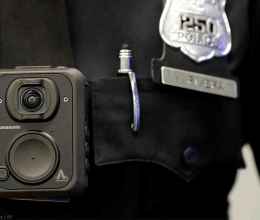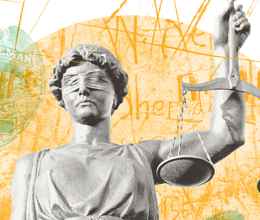
The Los Angeles Police Protective League (PPL) has, as a "public service," published an announcement concluding "that when you are detained by a police officer, you must provide identification when asked to do so, or face arrest for obstructing or delaying a police officer." This conclusion is incorrect, and we want to set the record straight on this important issue that has recently been at the center of public debate.
The PPL cites Hiibel v. Sixth Judicial District of Humboldt County, 542 U.S. 177 (2004) as upholding "the requirement to provide identification to an officer during a detention" and "ruling a police officer has a right to request identification during a valid detention."
In Hiibel, however, the question was whether a state may compel a suspect to disclose his name during a lawful stop. That case arose in Nevada, which had a stop and identify statute that made it illegal for a person detained by the police not to identify him or herself. There, the defendant refused to identify himself and was convicted and fined under the statute. He appealed, arguing, among other things, that the Fourth Amendment established a right to refuse to answer questions during a stop.
In upholding the conviction, the Supreme Court emphasized the Nevada law. According to the Court, "the Fourth Amendment itself cannot require a suspect to answer questions. This case concerns a different issue, however. Here, the source of the legal obligation arises from Nevada state law, not the Fourth Amendment."
Moreover, the Court emphasized that the state law required no more than answering an officer's request to disclose a name. The Court concluded that "[a] state law requiring a suspect to disclose his name in the course of a valid [] stop is consistent with the Fourth Amendment prohibitions against unreasonable searches and seizures."
We think it's clear that because California has no stop identify and statute -- and, therefore, in the words of the Supreme Court, has not created a legal obligation requiring a suspect to answer questions -- you cannot be arrested for failing to provide identification when detained by a police officer. (This is not true in the case of a motorist, however, as motorists are required under state law to have a license when driving.)
If you'd like more support for our position, we suggest that you consider what the State of California Department of Justice, Office of the Attorney General (AG) has concluded. The Office of the AG publishes the California Peace Officers Legal Sourcebook (CPOLS), a "training and resource manual for state and local law enforcement covers state and federal laws and constitutional issues involving the Fourth, Fifth and Sixth Amendments." In it, the AG concludes:
The Court [in Hiibel] upheld as constitutional a Nevada "stop and identify" statute and found that a detainee's failure to identify himself could be the basis for a lawful arrest under a companion statute almost identical to Penal Code section 148[, which makes it unlawful to resist, delay, or obstruct an police officer in the discharge of his or her duties].
Unlike Nevada and other states, California does not have a statute mandating that a detainee identify himself, and that obligation cannot be read into Penal Code section 148. Although you may take whatever steps are necessary under the circumstances to ascertain the identity of a person you have lawfully detained, Hiibel does not provide a means of arresting someone for failing or refusing to identify himself. The [United States Court of Appeals for the] Ninth Circuit has ruled that a suspect's failure to identify himself cannot, on its own, justify an arrest: "the use of Section 148 to arrest a person for refusing to identify herself during a lawful [] stop violates the Fourth Amendment's proscription against unreasonable searches and seizures." CPOLS, section 2.14a (citations omitted) (emphasis in original).
We add, moreover, that even if Hiibel’s holding applied in California, and it clearly does not, it provides no support for the PPL's conclusion that when you are detained by a police officer, you must provide identification. Hiibel makes clear that, where there is an obligation to answer questions, it is satisfied by stating your name, rather than providing your identification.
Hector Villagra is executive director at the ACLU of Southern California. Follow Hector on Twitter.





